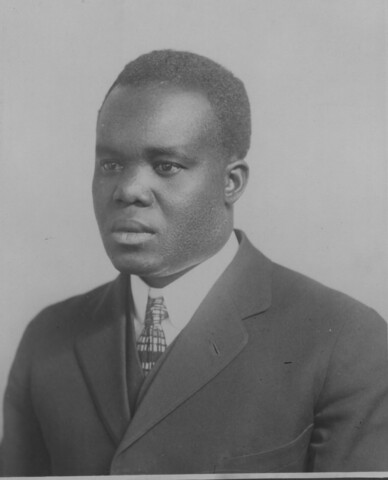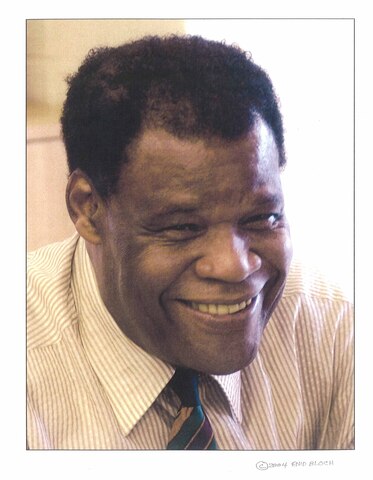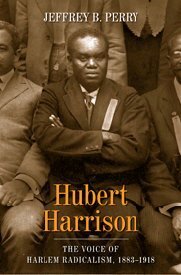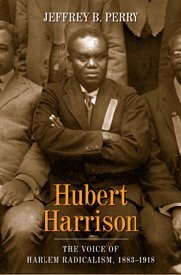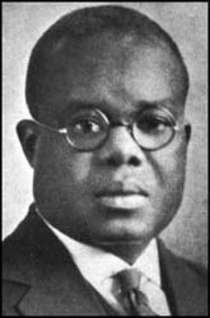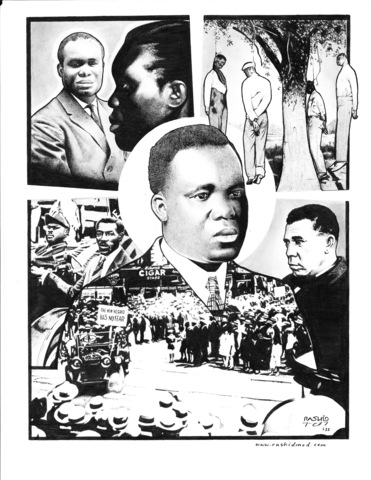
December 17, 2021, marks the 94th anniversary of the appendicitis-related death in Bellevue Hospital of St. Croix-born, Harlem-based Hubert Harrison (1883-1927), who was described by A. Philip Randolph as "the father of Harlem Radicalism," It is an appropriate occasion to call attention to his extraordinary life and political and intellectual work.
Harrison was: the leading Black activist in the Freethought movement (c. 1911) and the Socialist Party (1912); the only Black speaker at the Paterson Silk Strike (1913); the founder of the first organization (the Liberty League) and the first newspaper ("The Voice") of the militant "New Negro Movement" (1917); author of "The Negro and the Nation" (1917); editor of "The New Negro" ["an organ of the international consciousness of the darker races – especially of the Negro race"] (1919); principal managing editor of Marcus Garvey's globe-sweeping "Negro World" (1920); and author of "When Africa Awakes: The 'Inside Story' of the Stirrings and Strivings of the New Negro in the Western World" (1920). He initiated the first "regular book-review section known to Negro newspaperdom" (beginning in 1920) and he was: a pioneering regular lecturer for the New York City Board of Education (beginning in 1922); a regular columnist for the "Boston Chronicle" (1924); a founding officer of the Committee that established the Department of Negro History, Literature, and Art of the 135th St. Public Library (1924-1925) [which grew into the internationally famous Schomburg Center for Research in Black Culture in Harlem]; and founder of the International Colored Unity League (1924) and editor of its monthly "The Voice of the Negro" (1927).
Among the Black radicals of his day Harrison has been described as "the most class conscious of the race radicals and the most race conscious of the class radicals." He was a major influence on the class-radical Randolph and the race-radical Garvey, and on a generation of activists including Richard B. Moore, W. A. Domingo, Hodge Kirnon, and Cyril Briggs. He also supported artists, social workers, and literary figures such as author and poet Claude McKay, social worker Frances Reynolds Keyser, sculptress Augusta Savage, editor Drusilla Dunjee Houston, pianist Eubie Blake, and poet, composer, and lyricist Andy Razaf.
Harrison, a former postal worker who was fired after criticizing Booker T. Washington, opposed capitalism and imperialism and emphasized: that "racism" was not innate; that white supremacy was not in "white" workers class interests; that white supremacy was central to capitalist rule in the United States; and that struggle against white supremacy was central to radical social change efforts in the U.S. He emphasized: that "politically, the Negro is the touchstone of the modern democratic idea"; that "as long as the Color Line exists, all the perfumed protestations of Democracy on the part of the white race" were "downright lying" and "the cant of 'Democracy'" was "intended as dust in the eyes of white voters"; that true democracy and equality for "Negroes" implied "a revolution . . . startling even to think of," and that "capitalist imperialism which mercilessly exploits the darker races for its own financial purposes is the enemy which we must combine to fight." When he left the Socialist Party, he offered the profound insight that the Socialists, like the labor movement, "put [the white] Race First, and class after" and he soon responded by calling on Black people to put "Race First!"
Described by Joel A. Rogers in "World's Great Men of Color" as an "intellectual giant" who was "perhaps the foremost Aframerican intellect of his time," the "radical internationalist" Harrison wrote and spoke knowledgeably on literary, political, domestic and international topics. Author Henry Miller, a socialist in his youth, remembered Harrison on a soapbox [he spoke before as many as 50,000 people at Union Square in 1912] as his "quondam idol." "There was no one in those days . . . who could hold a candle to Hubert Harrison," explained Miller. "He was a man who electrified by his mere presence."
At his 1927 funeral, the outstanding bibliophile, Arthur Schomburg eulogized that Harrison "came ahead of his time." Schomburg was correct! While Harrison was a leading activist of his day, his ideas on the centrality of the struggle against white supremacy anticipated the profound transformative power of the Civil Rights/Black Liberation struggles of the 1960s and his thoughts on "democracy in America" offer penetrating insights on the limitations and potential of social change efforts in America in the twenty-first century.
When Harrison died, he was buried in an unmarked plot in Woodlawn Cemetery in the Bronx. Interest in him has increasingly grown in recent years, however, and a beautiful jet-black slant marker with etching was placed on the gravesite. It includes these words derived from the poem "Hubert H. Harrison" written by Andy Razaf, the unofficial poet laureate of the militant "New Negro Movement" –
Speaker
Editor
Sage
"What A Change Thy Work Hath Wrought."
Hubert Harrison has much to offer current and future generations!
Columbia University Press recently completed publication of the second volume of Jeffrey B. Perry's two-volume biography of Harrison, which is believed to be the first, full-life, multi-volume biography of an Afro-Caribbean and only the fourth of an African American after those of Booker T. Washington, W. E. B. DuBois, and Langston Hughes.
Jeffrey B. Perry
Dr. Jeffrey B. Perry is the author of "Hubert Harrison: The Voice of Harlem Radicalism, 1883-1918" and "Hubert Harrison: The Struggle for Equality, 1918-1927" (which was nominated for a Pulitzer Prize). He also edited "A Hubert Harrison Reader" (Wesleyan University Press) and placed "The Hubert H. Harrison Papers" at Columbia University's Rare Book and Manuscript Library where a significant number have been placed online.

